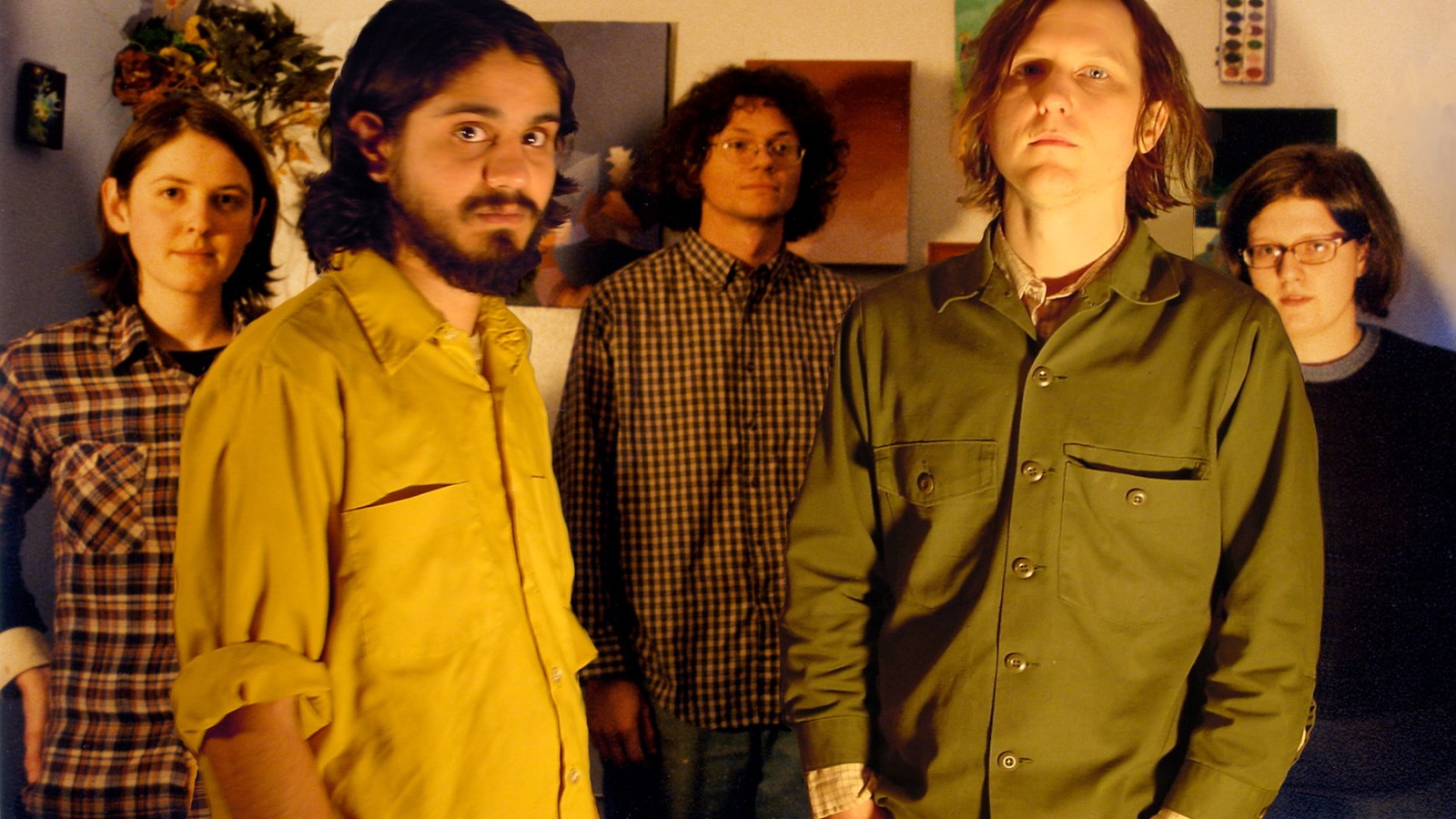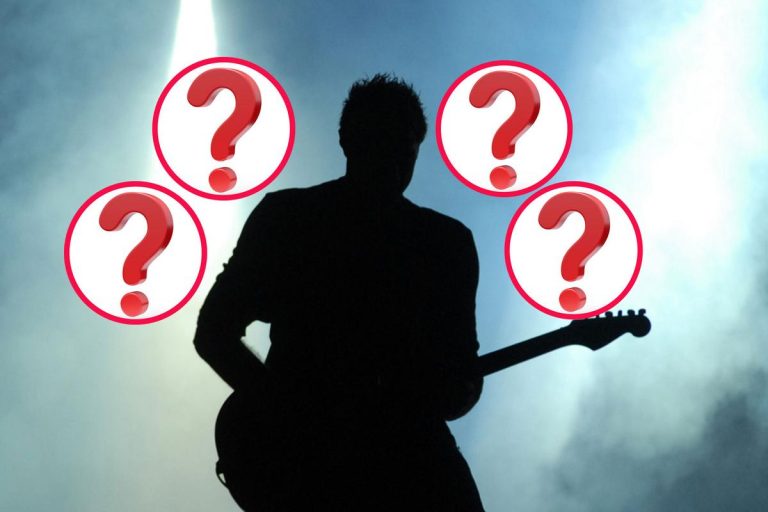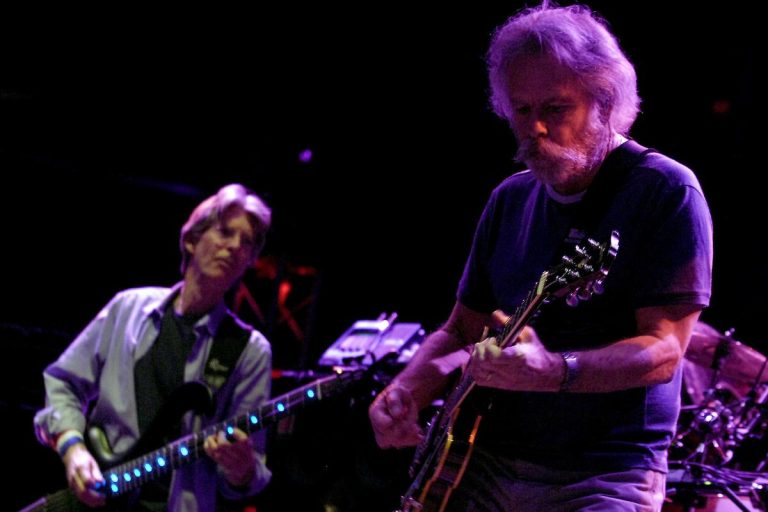Will Cullen Hart always seemed like he existed outside of time. The beloved Southern musician and visual artist, who died at age 53 on Nov. 29, spent his life writing and recording some of the most stunningly profound, beautifully naïve psychedelic music ever made. He was at the heart of the loose assemblage of visionaries called Elephant 6 from the time it began with four high school friends in Ruston, Louisiana, in the late Eighties. In the decades that followed, after they moved their center of operations to Athens, Georgia, many more people heard the intense psychological explorations that Jeff Mangum conducted with Neutral Milk Hotel; the candy-sweet indie-pop records that Robert Schneider made with Apples in Stereo had more instant appeal. But the Olivia Tremor Control — the band that Hart led with Bill Doss, the fourth member of that initial E6 circle — were the timeless ones, floating on a higher plane of endlessly hummable melodies and musique-concrete trapdoors.
The two albums the Olivias released in the Nineties, 1996’s Music from the Unrealized Film Script: Dusk at Cubist Castle and 1999’s Black Foliage: Animation Music Volume One, are the kind of records that make the term “cult classic” seem inadequate. If you encountered either of them at the right age, those albums exploded your horizons, made you fall in love, and convinced you to tell other people with a straight face that this indie band from Georgia were peers to the Beatles, the Beach Boys, and the Velvet Underground. One was a technicolor psychedelic-pop fantasy, the other a darker, thornier inner-space journey. They drew their strength from the complementary talents of Doss, who specialized in sunshine pop, and Hart, the heady studio alchemist. Those two singers and their bandmates, bassist/violinist/clarinetist John Fernandes, keyboardist Pete Erchick, and drummer Eric Harris, discovered wavelengths that have kept echoing for nearly 30 years now. But Doss died in 2012, and now Hart is gone, too. The dream that lasted so long has finally come to an end.
After the Olivia Tremor Control split up in 2000, Hart, Fernandes, Erchick, and a few other E6 stalwarts regrouped as the band Circulatory System. If anything, the music they made is even less well-known than the Olivia catalog, but its devotees are just as fervent. If you were willing to follow Hart and his friends down the dizzying rabbit holes of Black Foliage, then Circulatory System’s self-titled 2001 debut took you even deeper inside. Since the news of Hart’s death hit the world just after Thanksgiving, I’ve seen fellow fans turning to “Forever,” the campfire singalong that ends the album: “We will live forever, and you know it’s true.” I’ve been thinking about “Joy,” one of many jewel-bright koans that comes earlier on the LP: “If you still believe in joy/Even if the world is full of hate/We can blast away inside, way inside/There’s no reason to doubt it,” Hart sang. He was a musician who believed in joy even when that was hard to do.
A few years ago, I spoke with Hart about a 20th-anniversary vinyl repress of the first Circulatory System album. He was a sweet, thoughtful, rambling presence on the other end of the phone line, and while that interview went unpublished at the time, I revisited it this weekend and found it full of gnomic wisdom. He told me that Circulatory System’s introspective tone came from his approaching 30th birthday back in 2001. “All the things I’m thinking about are going inward,” he said. “And at the end, ‘we will live forever.’ To me it’s like a sequence — something like Dark Side of the Moon. It has a beginning and end.”
He talked about getting his old friend Jeff Mangum to play drums on some of that first Circulatory System album: “He doesn’t play drums on his own records. But he’s an incredible drummer, man.” He remembered how he and Doss had needed to follow their own paths at the end of the Nineties — “I was ready to do my own thing, I guess” — and how they had patched things up for a couple of Olivia Tremor Control reunion tours after Hart was diagnosed with multiple sclerosis in the mid-2000s.
For fans who got into the band after their initial split, those reunion shows felt like a miracle. I remember an Olivia show at New York’s Bowery Ballroom in 2005 where Mangum, still years away from re-entering public life, shocked everyone by appearing onstage to perform his vocal part from the Black Foliage song “I Have Been Floated.” The second Olivia reunion tour, circa 2011, was special in a different way — a chance to celebrate these musicians who had given us so much already, to thank them for coming back. Their last show took place in Athens just a week before Doss’ unexpected death of an aneurysm.
Hart kept returning to the idea of something existing outside of linear time. He quoted some lyrics from the Circulatory System song “Prehistoric”: “Prehistoric to the present day/It’s all inside us.” “Right now, where I’m sitting, it’s 1862,” he said, trying to explain. “And that’s happening. I can’t go in there, but I feel it happening.”
He continued: “When someone dies, I like to pretend I’m talking to them and they talk to me. I don’t really think that’s the case. But I like to dream that.”
Over the past decade and a half, there were periodic hints of new Olivia Tremor Control music. Year after year, Hart kept talking about going back to finish some songs that they’d been recording at the time of Doss’ death. “I’ll get to sing with him one more time,” he told me. “I have a part where I come in on one line where he’s singing. I’m still singing with him.”
Just this past week, two of those songs were released as part of the soundtrack to executive producer Rob Hatch-Miller’s Elephant 6 documentary: “Garden of Light,” a Bill Doss jangle-pop gem, and “The Same Place,” a moodier interlude that was pure Will Cullen Hart.
Back when we last spoke, Hart kept going on the theme of whether he’d ever see Doss again. “I did in a dream, once,” he said. “Sometimes I really feel like that might be real. He’s been in many dreams where I said, ‘I really feel like I saw him last night.’” So today, listen to “Garden of Light” and “The Same Place”; listen to Dusk at Cubist Castle and Black Foliage. It always felt magical to hear what happened when their visions and voices intertwined. That magic is more bittersweet today, but it’s still there. It will live forever, and you know it’s true.




Leave a Comment